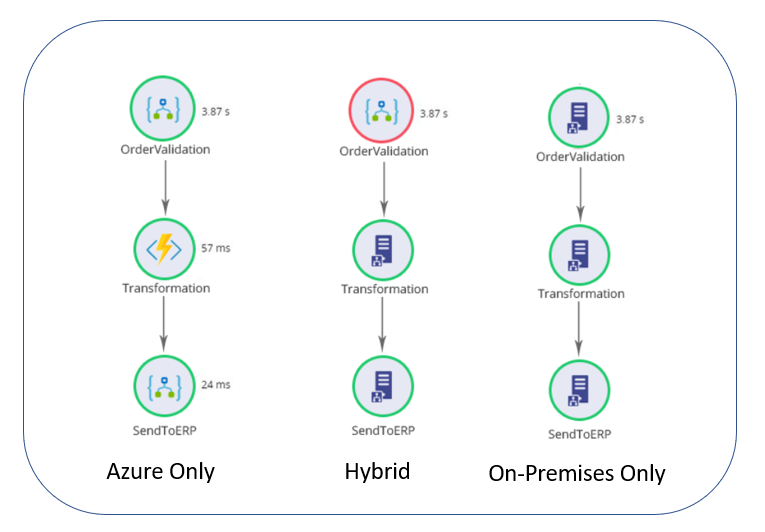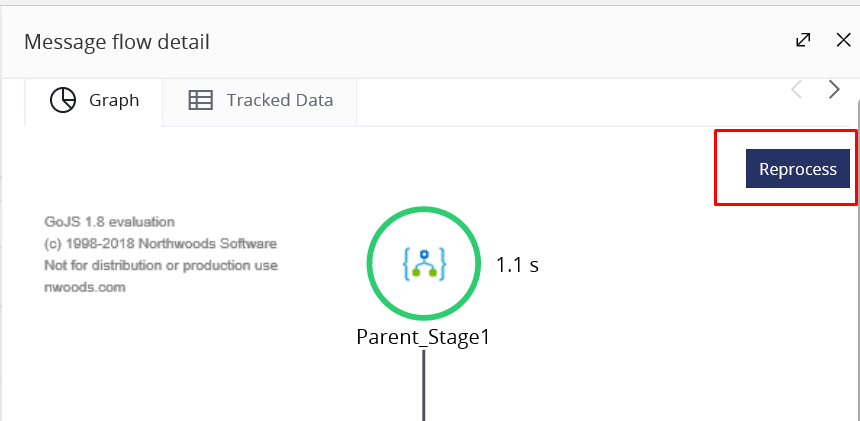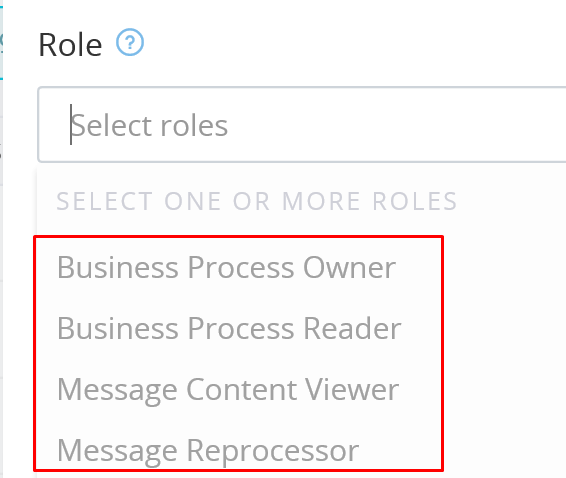Atomic Scope is a functional end to end monitoring software for Azure Integration solutions, Hybrid integration solutions, and on-premises BizTalk only services. Because of its intuitive user interface, rich functionalities and support for diverse integration solutions, it is getting broader traction in the market. Atomic Scope already has customers who are using it in production.
“Atomic Scope has attracted many potential customers who have undertaken the proof of concept(POC) for the product’s adoption”
In product demos and customer discussions, one common question we hear the majority of the times. The question is “what are the advantages of Atomic Scope over generic application performance monitor(APM) platforms?”. Examples of APM platforms are Splunk, App Dynamics, Dynatrace, Azure Application Insights, Azure Monitor Logs(Formerly known as Log Analytics) etc. Some of these products support hybrid multi-cloud environments.
We start by explaining why the end-to-end monitoring of integration solutions is essential for the functional support teams. Then we start explaining how this concept is different from the Application Performance monitoring and finally move on to the listing capabilities which Atomic Scope brings to users and compare them with capabilities of APM platforms.
To understand why an end to end monitoring of integration solutions is essential, refer to an excellent white paper “Where is my message” written by Michael Stephenson. Also to understand the capabilities of an enterprise-grade end to end monitoring solution, refer to another blog article written by me “Why businesses should invest in activity tracking tool.”
In this blog article, I would be elaborating on the third part of the answer which is comparing capabilities of Atomic Scope with other APM platforms, specifically Azure Monitor Logs and Application Insights.
Unified Approach to Access Activities
Traditionally, organizations have built their on-premises integration solutions using Microsoft BizTalk Server. Now, these organizations transforming and completely moving applications to Azure. Combination of services such as APIM, Logic Apps, Azure Functions, Azure Service Bus is used to build these integration solutions. Some organizations are keeping the existing on-premises integration solutions and building new ones in Azure which is creating hybrid scenarios.
With all these scenarios emerging, functional support teams are facing challenges. They see that different services are equipped to log activities to different logging systems.
- In BizTalk Server we log activities to BAM or with some custom effort we can send them to Application Insights
- Logic Apps are only equipped to log tracking data into Azure Monitor Logs (Formally known as Log Analytics).
- Azure Functions are equipped to send data to Application Insights.
Each of these logging systems provides different ways of visualizing the data. When a functional support person needs to track a business transaction, he will have to fetch different activities from different logging systems based on the entities processing the messages. This is too much for somebody who is close to the domain and has less knowledge of the technology.
Now the burden of answering first level support calls shifts from functional support to more technical support and functional support becomes inefficient.
“With Atomic Scope, functional support team need not worry about the technology behind”
They will have Atomic Scope portal, where the data for the activities are accessed in a unified manner regardless of the kind of technology.
Regardless of the integration scenario functional support team can access the data in a unified way.![]() Verdict: Atomic Scope is a clear winner as it brings efficiency in functional support by providing a unified approach for searching, monitoring, analyzing business transactions.
Verdict: Atomic Scope is a clear winner as it brings efficiency in functional support by providing a unified approach for searching, monitoring, analyzing business transactions.
Message Archiving and Reprocessing
For organizations, message archiving could be essential for a couple of reasons. One is to store them for auditing purposes, and the other one is to reprocess the messages during failure conditions. We see the following disadvantage when we use Azure monitor logs or application insights.
- Azure monitor log fields have a restriction on the data size. Hence without a custom implementation, it is not possible to handle large messages.
 Source: Azure monitor Logs data limits
Source: Azure monitor Logs data limits
- Data visualization portals do not provide the option to reprocess the messages. There are Azure Monitor Solutions(Formerly known as Azure management solutions) which does allow reprocessing of Logic Apps. But achieving the same in Azure Function is not possible without a custom solution.
“Atomic Scope provides state of the art features for archiving the messages and resubmitting them in a unified way”

Atomic Scope allows users to reprocess messages to Logic Apps, Azure Functions, Service Bus Queues, Topics, and BizTalk server.
Verdict: Atomic Scope is a clear winner as Message archiving and reprocessing are not a core capability of Azure Monitor Logs and Application Insights. Users will have to put a lot of effort into building those capabilities whereas Atomic Scope can do it off the shelf.
Configuration based data tracking
Nowadays businesses need to be very agile to keep themselves on top of the competition. To improve the efficiency of the functional support team, we need to regularly revise the data required for resolving support tickets effectively.
Hence it is possible that we need to add more fields to tracked data or remove redundant ones. In Azure monitor logs or Application Insights, it is hard to add new elements or delete existing ones without changing deployed solutions.
With Atomic Scope, one need not re-deploy a solution just for tracking additional properties or removing few. It is just a matter of updating the Business Process configuration.
![]()
Verdict: Atomic Scope is a clear winner as it has a configurable way of collecting tracked data.
Granular Access Control
The access control in Azure Monitor Logs or Application Insights will be at the level of Workspaces. These workspaces generally assign Reader or Contributor roles. Because of this users will not have the business process level access control.
Anyone who has got access to a workspace will have access to data from various Business Processes. This is not ideal for organizations with strict data access restrictions. Especially when we are archiving and reprocessing messages, granular user access policy is essential.
On top of this, Microsoft’s recommends using as few workspaces as possible making situation worse.
 Source: Azure Monitor manage access
Source: Azure Monitor manage access
“Atomic Scope has very granular user access policy. It allows you to define who has access to which business process and who can view the body of the messages, edit and reprocess them”

Verdict: Atomic Scope is a clear winner as it has got much more control over the collected data and who can do what through its user access policies.
Access to near real-time data
The real-time access to the activities is essential for functional support teams as well as testing teams. Testing teams ensure the data integrity and correctness of the message flow. Support teams need to receive alerts when there are exceptions and anomalies. It means when an activity is taking place, a user should be able to search it, view it in the portal and receive alerts.
When you use Azure Monitor logs or Application Insights, there is a time lag between the time you log the events and the time they are visible in visualization tools. This time lag depends on the SLA of the chosen pricing tier. This makes it difficult for the support team to get hold of the activities sooner.
On the other hand, Atomic Scope logs and displays the data almost instantaneously as and when activities are taking place.
Verdict: Atomic Scope is a winner as it makes near real-time data available for the users in the portal.
Conclusion
It is clear that Atomic Scope provides features which distinguish itself from the generic APM platforms. It has quite a few advantages over Azure Monitor Logs and Application Insights.
APM platforms are like brick and mortar. Organizations can build custom solutions on top of APM platforms to get an end to end view of integration solutions. This includes creating wrapper frameworks for data ingestion, correlation, and visualization. However, it is effort-intensive and demands a big upfront investment.
We estimate that customers would spend around 20% to 30% of the budget and effort on building custom solutions. Atomic Scope helps you to bring down this cost to around 5%. It helps in improving the efficiency of functional support teams by giving them a sophisticated tool.
Atomic Scope is a functional end to end business activity tracking and monitoring product for Hybrid integration scenarios involving Microsoft BizTalk Server and Azure Logic Apps. Try Atomic Scope free for 15 days!


